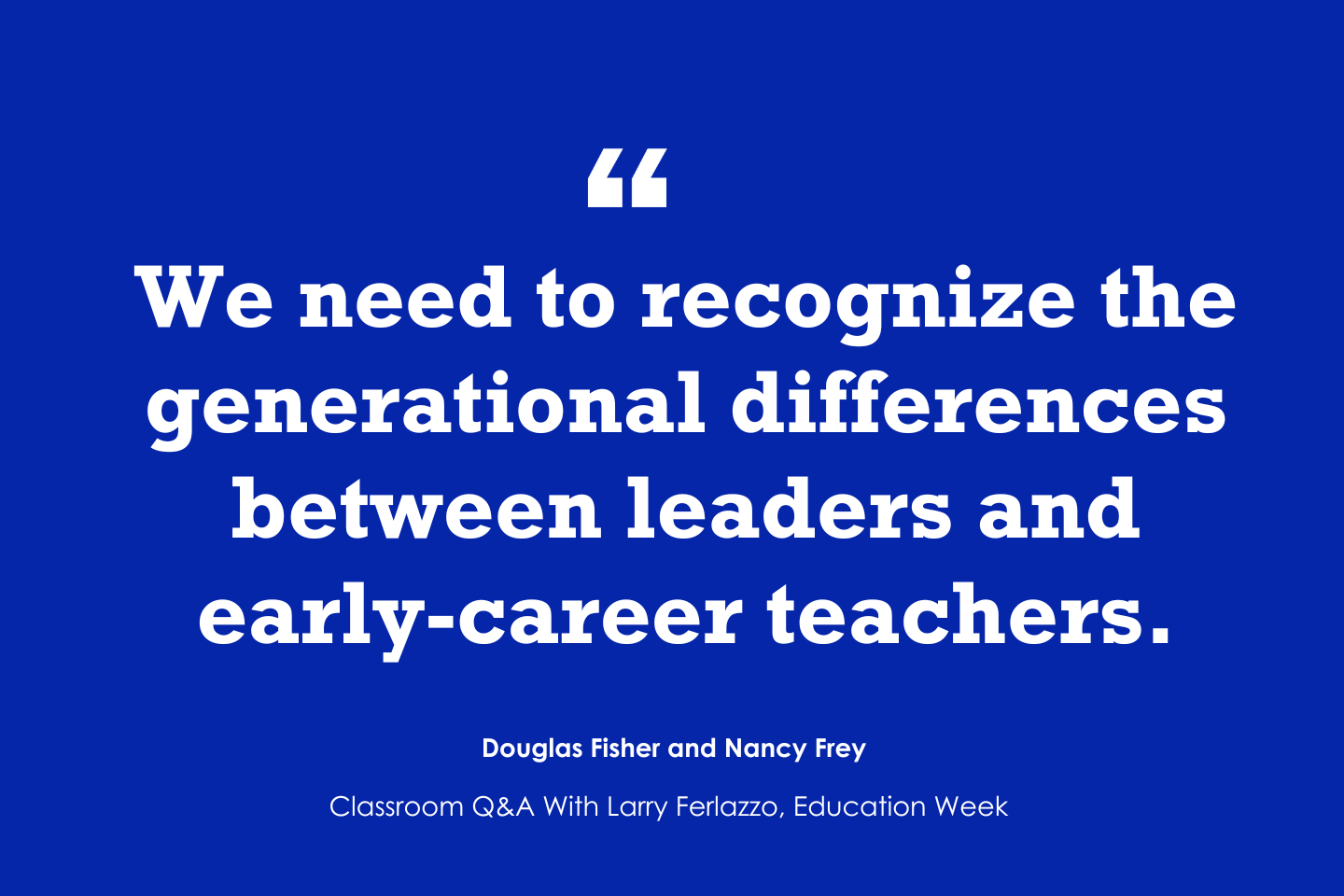Don’t worry, daily Eduwonk will not be a thing, there is just a lot going on right now. As soon as things quiet down (2029?) we’ll get back to the usual irregular posting. Some disclosures related to today’s content at the bottom. Reminder: Tuesday, Feb 18th, live recording of Wonkyfolk in Washington, D.C. Crimson Whiskey … Continue reading "Culture Clash & Realignments, And When Is Breaking And Building Just Breaking? Plus, Betsy V. Bush and AI & Teachers"
Don’t worry, daily Eduwonk will not be a thing, there is just a lot going on right now. As soon as things quiet down (2029?) we’ll get back to the usual irregular posting. Some disclosures related to today’s content at the bottom.
Reminder: Tuesday, Feb 18th, live recording of Wonkyfolk in Washington, D.C. Crimson Whiskey Bar. Jed Wallace and I will discuss the pending – and potentially quite consequential -SCOTUS case on religion and charter schools as well as the chaos in DC. Details and RSVP here.
ICYMI: With the Campaign for Grade Level Reading I moderated a discussion about sports and SEL. Sports-focused activities, whether actual athletic activities or just using athletes as mentors turns out to be a way to teach skills like goal setting, resilience, and empathy without some of the politics that are swirling around SEL. Panelists included a couple of American Gold Medal Olympic athletes, leaders in local programs and initiatives, and experts.
DOGE v. IES
Yesterday Bellwether hosted a LinkedIn discussion with former IES director Mark Schneider about what’s happening at IES. This excellent 74 article by Greg Toppo does a nice job laying the issues out. AP is here. K12 Dive is here.
One research adjacent wag texted me that this is the most anyone has ever talked about an IES issue that wasn’t NAEP scores. Tough, but fair. More on those scores below.
On IES reform, Checker Finn urges reform and caution. I did the same yesterday, mend don’t end. I also think a lot of this falls under its own weight at some point, there is no underlying political logic to it and while that might not matter in the moment it will in the future.
Two things to note. First, the problem for the ed world is that Democrats are picking their hills to die on, this might not be one. (Ruy Teixeira disagrees, Jay Caspian Kang hopes not and sees a logic to what’s happening). More than a few name brand Democrats around education are privately like, ‘yeah, don’t love most of that stuff’ when discussing IES and its procurement. That sort of thing matters. Look for more energy around big cuts at main ED. Those will also have more salience politically.
Second, the culture divide between tech (so DOGE and that crowd) and education research and education more generally is really striking just in terms of how people process what is going on and how normal disruption is or not. What’s normal in terms of level of disruption, layoffs, etc…in the tech world and the education research world are very different. That’s not about who is right or wrong, everyone will call that differently. But what matters is that tech culture has jumped its containment vessel, it’s here, and it’s shocking people. In some ways Donald Trump is sort of a bystander to it, though he hardly seems averse to chaos and action.
You can watch the LinkedIn discussion here. Appreciate the feedback, some people loved Mark’s take, some people hated it, and some are varying degrees of optimistic or pessimistic and wait and see. A few people have said we should not “platform” Mark. I’d respectfully suggest that’s exactly the kind of nonsense that got us into this mess. There is no world where you’re not better off knowing more about what’s happening and why, the theory of the case, even if you don’t agree, from a seasoned professional with real experience at the agency in question and informed views.
Nine things to know from the discussion:
- The DOGE team is getting smarter about how they do this work in terms of the legality. The thing all the work that was cut seems to have in common is that it could be cut based on contract provisions rather than features of the work. That’s the key thing here: these cuts are not based some framework, quality, type of program, or even methods. It’s just cutting for cutting’s sake because the mechanism to cut is available via the procurement process.
- That’s why important work is getting swept up in this and also why some things the administration says it wanted to protect are nonetheless at risk because data needed to do those things is now at risk if solutions are not put in place. Chesterton’s fence this is not.
- Unsurprisingly, proponents are picking extreme examples to justify the cuts, and critics are doing the same to oppose them. The real question is not anecdote by anecdote, it’s does this lead to a more effective IES?
- In some cases this could end up costing rather than saving money if contracts get rebid for congressionally mandated activities or work has to be recreated. The administration has sent mixed signals there. They are also setting themselves up for a lot of work if indeed they plan to address some of the data holes they’re creating. There is, no pun intended, a more efficient way to do this.
- The case Mark and others make is that this is the only way to reform the federal role in education research. I don’t agree with that, or that case about the federal role more generally, but Mark made the strongest case for it and a lot of people agree. Worth listening to his argument because that is the argument to understand and engage with. It’s not an argument without merit, but I’d give it lower probability than other outcomes, with one possible exception I’ll describe below.
- The argument also seems to be that reform is impossible unless it’s fast because the forces of the status quo will gather to resist change. That might be right as a practical political matter, but that gathering is also called democracy. And as messy, imperfect, and political as it is I think we’re still better off with big policy reforms that come through Congress not by fiat, as we discussed.
- Congress, though, is a wild card. This sort of assault on their prerogatives would have occasioned real reaction and consequences in the past. This is a different time. Congressional staff didn’t even have a list of the cuts until the afternoon, even though they were announced the night before via X/Twitter, of course. They’re on Twitter now if you haven’t seen them (some of the early counts of contracts cut were confusing or wrong because they included headers…). As we discussed yesterday at some point the fact that some of this money is spent in states and congressional districts around the country is going to become an issue. Spending cuts in the abstract are different than in practice. We also discussed how that will matter to the fight about indirect rates.
- Even if you buy the wholesale tear down case, the question on what’s going to be built is an open and pretty important one. As I noted yesterday, sometimes things get broken and fixed better, sometimes just broken. This is $881 million in spending, the question as Mark forthrightly noted, is what comes next. It’s striking how little we’ve heard about what this is in service of or what comes next or really any vision from administration officials.
- Why is no one asking how we accomplish big education goals – pandemic recovery, international competitiveness, skilled jobs and industrial policy – absent a national strategy? Maybe that will come up on Thursday? Or maybe not. We got through a whole national campaign with no one talking about it.
Talent solution? Something hidden in plain sight here is the quality and seriousness of some senior appointments to the Department of Education. Notably, former Tennessee state chief Penny Schwinn as Deputy and North Dakota state chief and former CSSSO president Kirsten Baesler for Elementary and Secondary Education. One argument is that none of that will matter – especially as long as Elon Musk and his merry band of 4Chan-addled basement dwellers are calling the shots. Or that Linda McMahon is a competent program administrator, but will interpret her mandate literally not seriously – so dismantling the Department rather than reforming it. Another is things are going to quiet down, courts will address the issues where actions (eg data access) have crossed legal lines, and there will be adults in the room soon. I’d be skeptical of anyone who tells you they know exactly what will happen one way or another – even the Trump people don’t seem too sure.
If you want to get Eduwonk.com in your inbox when it’s published you can sign up for free here.
Jay Caspian Kang sees a playbook:
I’d recommend the always informed and always insightful (and fine fisherman) Kevin Kosar on all this as well:
Related, larger political changes swirling, look for more class v. race conversations, this from Noam Schieber in The Times:
In this Betsy DeVos op-ed calling for dismantling the Department of Education she aligns herself, and the abolitionists, in a vigorously populist way against No Child Left Behind/Bush and Race to the Top/Obama. That’s another new alignment. This is less R/D than mend it versus end it or establishment versus the buccaneers.
All of this is happening against a remarkable – and remarkably depressing – backdrop. The CEPR Education Recovery Scorecard came out yesterday. The project highlights districts that are outperforming – showing it can be done even against challenging circumstances. But the overall picture is grim:

Via RAND, here’s a look at some new data on AI use by teachers and principals. Look for work from Bellwether on this as well in the next few days.
Oklahoma theater kids? (Based on polling, Stitt is a lot more popular in the state than Walters.)
(Disclosures, I’m on the board of directors for Classroom Champions, we use Olympic, Paralympic, and professional athletes as mentors in high-poverty classrooms. I am on the advisory board for RAND’s AIRS initiative. I’m on the advisory board for CEPR at Harvard, they produce the Education Recovery Scorecard. I’m on the board of The 74, but had nothing to do with the production of that story.)























